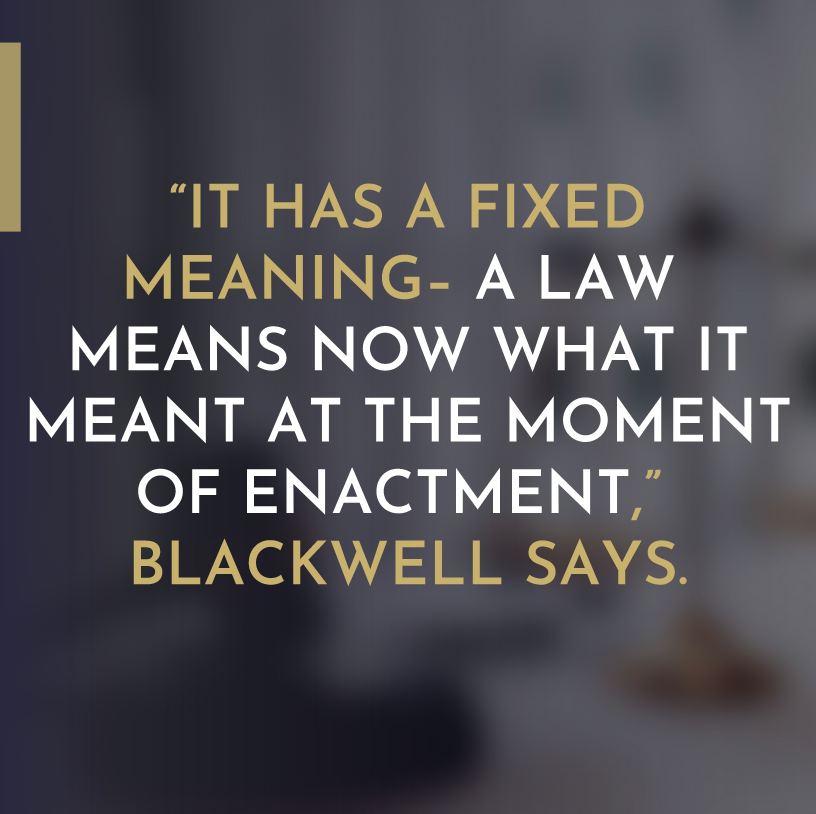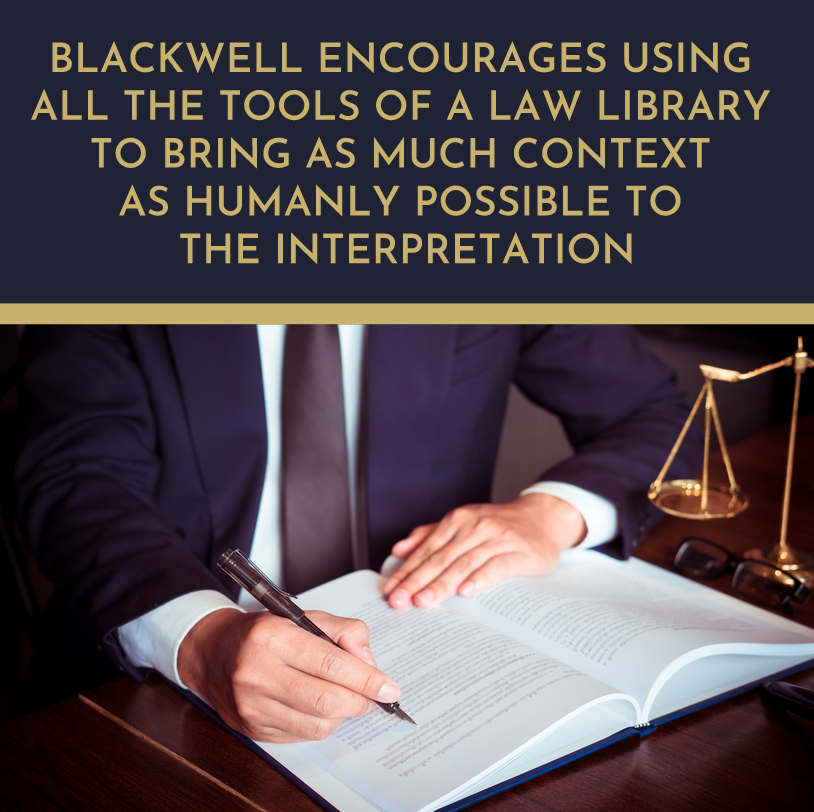Keith Blackwell approaches the law like a time traveler. That’s because the former Justice of the Georgia Supreme Court embraces originalist textualism – a method of legal interpretation that relies on diving deep into legal code to determine the original meaning of a law.
“If you adopt an originalist approach to ascertaining the meaning of text, then you have to go through the endeavor of almost going back in a time machine and trying to figure out what these words most reasonably would have been understood to mean at the time the law was enacted,” Blackwell said.
In this episode, Blackwell explains not only the fundamentals of this legal approach but also breaks down how lawyers can use it to more effectively represent their clients.
WHAT IS ORIGINALIST TEXTUALISM?
To understand originalist textualism, you need to understand its two guiding theories: originalism and textualism.
Textualism is a way of interpreting law that requires looking solely at the words that make up the law. It ignores outside factors of the text, like the problem the law is addressing or the presumed intentions of the lawmakers. Rather, the legal text becomes the main focus.
“Any positive law draws its meaning from its text, because legislators – the promulgators of constitutions, statutes, regulations – they do so by putting words to paper and those words carry some meaning,” Blackwell said. “And whatever the meaning of those words are is the meaning of the constitution or the statute or the regulation. That is the idea behind textualism.”
Once you have dedicated yourself to the idea of textualism, the next question then becomes: ‘What do those words mean?’ You can interpret these words as they mean today or what the words would have meant at the time the law was adopted.
“That doesn’t matter much for a law that was adopted in the last 10 years usually,” Blackwell explained. “It can matter a great deal, though, if you’re talking about a law that was adopted a couple of 100 years ago because words can drift in meaning over time.”
That’s where originalism comes in. At the heart of originalism, is the idea that laws mean no more or less than what they meant to those who originally wrote them.
It requires you to go back to the time the law was enacted and understand what the statute would mean in that era.
“It has a fixed meaning – a law means now what it meant at the moment of enactment,” he said. “And if the law is to change, then it should change through the democratic process of, in the case of a constitution, the people changing it or in the case of a statute, the legislature changing it.”
HOW DO I FIND THE LAW’S ORIGINAL MEANING?
When a law is dated, figuring out its original meaning isn’t a walk in the park.
Luckily, Blackwell suggests a number of tools for judges and advocates to begin to ascertain its significance. First, he recommends closely considering the definition of each individual word. But you have to remember to interpret it through the time period it was written.
“If you’re talking about a really old law [then] you look to a dictionary that was roughly contemporaneous with the enactment of the law, if you’re doing […] originalist textualism,” Blackwell said.
The next step is looking at the law or statute more broadly. You should consider not just one section, but also the language in the context off the entire statute or other statutes around the statute at issue. Blackwell also advises looking at other statutes in the area of law and of diving into what the words within it meant at the time the words were written? When the words were used in court cases before the language was enacted, how were those words used?
Blackwell encourages using all the tools of a law library to bring as much context as humanly possible to the interpretation.
“If I am concerned with the meaning of a particular Code section, I will actually pull out the Codebook and I will peruse that entire article or title of the Code to see what else is in there and how this particular section interacts with other provisions, how it fits with other provisions, how it’s supposed to work with those other provisions.”
HOW CAN IT HELP ME?
Whether your case is going in front of the Georgia Supreme Court or the national one, it’s likely arguments that rely on originalist textualism will carry the most weight.
“If your case winds up in the appellate courts [of Georgia], your case is going to be resolved based on principles like this,” Blackwell said.
It’s all about knowing your audience. Since the justices you will present your cases will likely be using this guiding theory, it’s important your work reflects your knowledge of it.
“You can sit back and not develop those sorts of arguments,” he said. “But then you’re just kind of taking your chances with how this is going to turn out if it winds up in front of the appellate courts. Because if you don’t try to do the work, the judges are going to do it on their own.”
Recently, textualism has been publicly criticized after a draft of an opinion purported to have been authored by United States Supreme Court Justice Alito was leaked. This opinion, if it were to be a majority opinion, would overturn Roe v. Wade, leaving the legality of abortion up to individual states. That purported draft opinion relies upon the tools of textualism.
I do not take a position on textualism either as a proponent or a critic. Rather, this podcast is intended to educate the listener on the approach to better understand issues in the news. And to the advocate who practices before courts with judges or justices who are textualist a tool to use to better represent their clients.
To learn more about this show and to follow along with our journey, please rate, review and follow The Advocate’s Key wherever you listen to your audio content.


